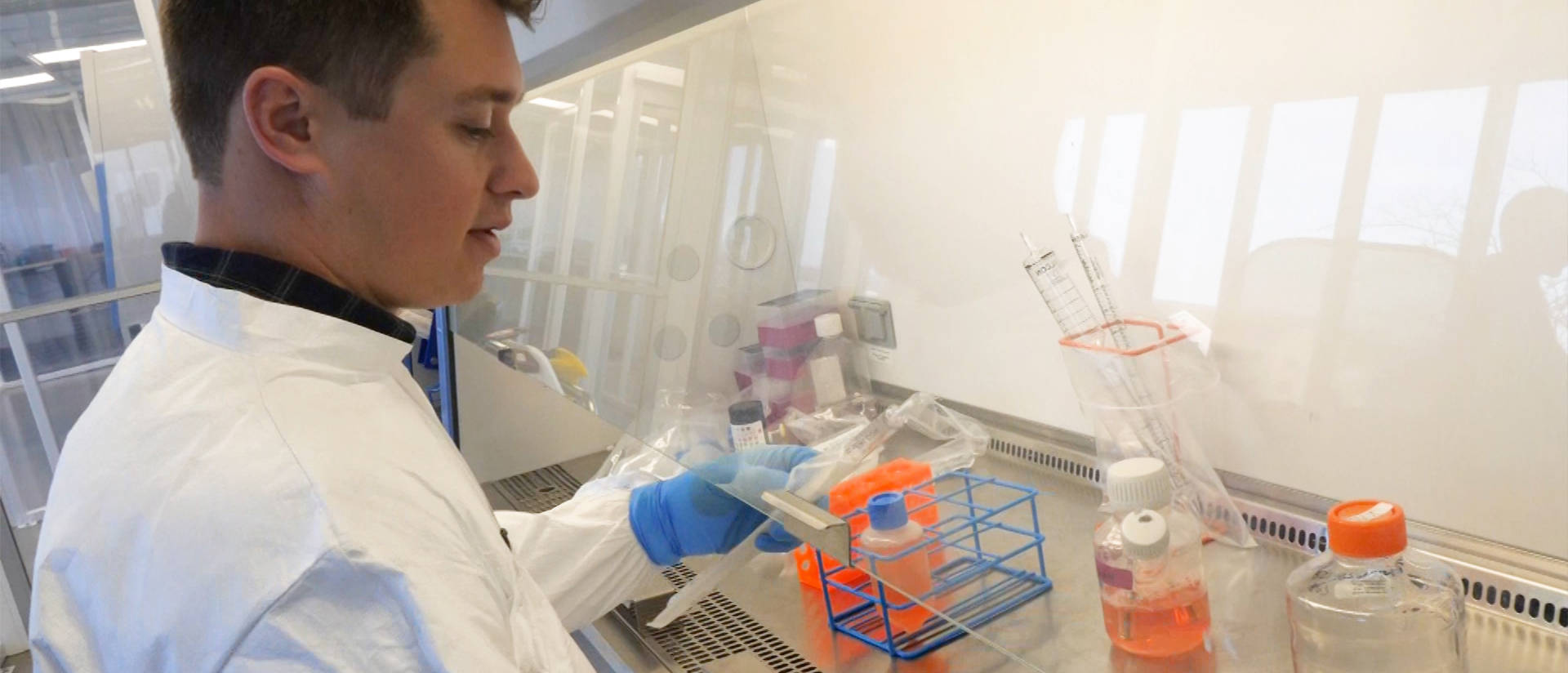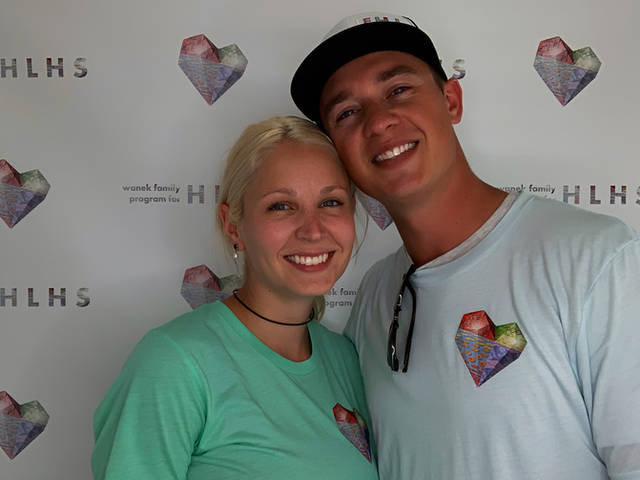
Microbiology grad doing ground-breaking work: Casey Huxtable '15
Pioneering research and clinical trials
By Denise Olson
In 2018 we introduced readers to 2015 microbiology graduate Casey Huxtable, who works as a quality assurance technician for ReGen Theranostics based in Rochester, Minnesota. Huxtable and ReGen are part of a research collaboration with a Mayo Clinic foundation working to save the lives of babies born with a condition known as hypoplastic left heart syndrome (HLHS), a congenital heart defect requiring eventual open-heart surgery.

Casey and Calla Huxtable in the Eau Claire lab location of ReGen Theranostics, where they both work for the Wanek Family Foundation.
The Wanek Family Foundation funds the research and clinical trial through which Mayo Clinic researchers, ReGen and technicians like Huxtable prepare stem cells taken from newborns and grows them in anticipation of open-heart surgery when infants are stronger months later.
The groundbreaking stem-cell procedure has just been performed for the 80th time, critical advances in the treatment of this serious heart defect, and Huxtable remains a crucial team member.
"These surgeries entirely replumb the cardiovascular system, allowing the right ventricle to perform the entire work of a normal heart. Without this intervention, 95% of patients would not survive infancy. They will require an eventual heart transplant," Huxtable said, explaining the mission of the foundation. "ReGen and the Wanek family program for HLHS were created for the sole purpose of advancing the standard of care for HLHS. Our goal is to develop new treatments that strengthen the right ventricle, delaying or even eliminating the need for a transplant."
Huxtable, whose work with ReGen has transitioned from lab research to quality assurance, now oversees the manufacturing process to ensure the safety of stem-cell products and full compliance with FDA regulations.
"The product that is closest to FDA approval is an injection of the patient's own stem cells during the Glenn operation, the second of three surgeries," he explained. "The hope is that these stem cells act as a sort of 'heart fertilizer' and strengthen the right ventricle, enhancing cardiac function."
As research and success rates in this program have continued to grow, so has the need for expanded facilities, which has brought Huxtable and his wife back to the Chippewa Valley to live and work. The expansion of ReGen to Eau Claire will also expand research opportunities for more Blugolds like Huxtable.
"It became clear that the Rochester facility would not be adequate for a Phase III clinical trial or licensure of an FDA approved therapy," he said. "We surveyed potential locations for a new facility and Eau Claire was an obvious choice due to the collaboration with Mayo Clinic and UWEC, and the abundance of highly qualified students for internships and employment after graduation. We foresee enormous opportunity for both institutions, future graduates and the city of Eau Claire. I’m very grateful to have ties to both."
Huxtable's wife, Calla, a UW-Stout graduate, also works for ReGen as a marketing and brand specialist. Her role is to manage relationships between various care and clinical teams and increase patient and public awareness of these new treatments. The HLHS program has developed a consortium of eight children's hospitals around the U.S. that collaborate and offer these new treatments.
"My wife and I met here in Eau Claire and we’re so happy to be back. We actually close on a home near UW-Eau Claire later this spring. After bouncing around western Wisconsin and eastern Minnesota for a few years, there is no community we’d rather be a part of than Eau Claire."
Watch the following video to learn more about Casey's journey at UW-Eau Claire and his 2018 reflections on his role in the work to save lives.